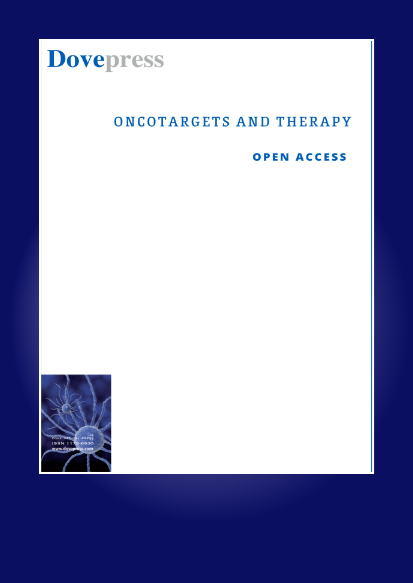The Study of PIK3CA Hotspot Mutations and Co-Occurring with EGFR, KRAS, and TP53 Mutations in Non-Small Cell Lung Cancer
IF 2.8
4区 医学
Q3 BIOTECHNOLOGY & APPLIED MICROBIOLOGY
引用次数: 0
Abstract
Objective: PIK3CA-mutant non-small-cell lung cancer (NSCLC) is associated with other genetic mutations and may influence treatment strategies and clinical outcomes. We aimed to characterize PIK3CA mutations co-occurring with several major driver mutations using data from published cohorts and our medical center.Materials and Methods: We analyzed NSCLC patients harboring PIK3CA mutations from The Cancer Genome Atlas (TCGA) and Memorial Sloan Kettering (MSK) databases and retrospectively identified NSCLC patients with PIK3CA-mutants at a single medical center from our electronic records. The Log rank test was used to determine the association between PIK3CA mutations and overall survival (OS) in NSCLC patients.
Results: Common hotspot mutations in PIK3CA were found in exon 9 (c.1633G > A, E545K, and c.1624G > A, E542K) and exon 20 (c.3140A > G, H1047R) in all cohorts. Co-occurring mutations of PIK3CA with EGFR, KRAS, and TP53 have been frequently observed in patients with NSCLC, with different percentages in these datasets generated by different background. PIK3CA mutations were observed to be significantly associated with poor OS in lung adenocarcinomas patients in the MSKCC cohort (hazard ratio [HR] = 0.519, 95% confidence interval [CI] = 0.301– 0.896; P < 0.05).
Conclusion: PIK3CA co-occurring mutations in other genes may represent distinct subsets of NSCLC. Further elucidation of the roles of PIK3CA hotspot mutations combined with other driver mutations, including EGFR and KRAS, is needed to guide effective treatment in patients with advanced NSCLC.
Keywords: co-occurring mutation, non-small cell lung cancer, PIK3CA, The Cancer Genome Atlas, Memorial Sloan Kettering Cancer Center
非小细胞肺癌中 PIK3CA 热点突变及与 EGFR、KRAS 和 TP53 基因突变共存的研究
目的:PIK3CA突变的非小细胞肺癌(NSCLC)与其他基因突变相关,可能会影响治疗策略和临床结果。我们旨在利用已发表的队列数据和本医疗中心的数据,描述与几种主要驱动基因突变共存的 PIK3CA 突变的特征:我们分析了癌症基因组图谱(TCGA)和斯隆-凯特琳纪念医院(MSK)数据库中携带PIK3CA突变的NSCLC患者,并从我们的电子记录中回顾性地确定了一家医疗中心中携带PIK3CA突变的NSCLC患者。采用对数秩检验确定PIK3CA突变与NSCLC患者总生存期(OS)之间的关系:结果:在所有队列中,PIK3CA的第9外显子(c.1633G >A,E545K和c.1624G >A,E542K)和第20外显子(c.3140A >G,H1047R)都发现了常见的热点突变。PIK3CA与表皮生长因子受体(EGFR)、KRAS和TP53的共存突变在NSCLC患者中经常被观察到,不同背景的患者在这些数据集中所占的比例不同。在MSKCC队列中观察到,PIK3CA突变与肺腺癌患者较差的OS显著相关(危险比[HR] = 0.519,95%置信区间[CI] = 0.301- 0.896;P < 0.05):结论:PIK3CA与其他基因同时发生突变可能代表了不同的NSCLC亚群。需要进一步阐明PIK3CA热点突变与其他驱动突变(包括表皮生长因子受体(EGFR)和KRAS)的作用,以指导晚期NSCLC患者的有效治疗。关键词:共生突变;非小细胞肺癌;PIK3CA;癌症基因组图谱;纪念斯隆-凯特琳癌症中心
本文章由计算机程序翻译,如有差异,请以英文原文为准。
求助全文
约1分钟内获得全文
求助全文
来源期刊

OncoTargets and therapy
BIOTECHNOLOGY & APPLIED MICROBIOLOGY-ONCOLOGY
CiteScore
9.70
自引率
0.00%
发文量
221
审稿时长
1 months
期刊介绍:
OncoTargets and Therapy is an international, peer-reviewed journal focusing on molecular aspects of cancer research, that is, the molecular diagnosis of and targeted molecular or precision therapy for all types of cancer.
The journal is characterized by the rapid reporting of high-quality original research, basic science, reviews and evaluations, expert opinion and commentary that shed novel insight on a cancer or cancer subtype.
Specific topics covered by the journal include:
-Novel therapeutic targets and innovative agents
-Novel therapeutic regimens for improved benefit and/or decreased side effects
-Early stage clinical trials
Further considerations when submitting to OncoTargets and Therapy:
-Studies containing in vivo animal model data will be considered favorably.
-Tissue microarray analyses will not be considered except in cases where they are supported by comprehensive biological studies involving multiple cell lines.
-Biomarker association studies will be considered only when validated by comprehensive in vitro data and analysis of human tissue samples.
-Studies utilizing publicly available data (e.g. GWAS/TCGA/GEO etc.) should add to the body of knowledge about a specific disease or relevant phenotype and must be validated using the authors’ own data through replication in an independent sample set and functional follow-up.
-Bioinformatics studies must be validated using the authors’ own data through replication in an independent sample set and functional follow-up.
-Single nucleotide polymorphism (SNP) studies will not be considered.
 求助内容:
求助内容: 应助结果提醒方式:
应助结果提醒方式:


